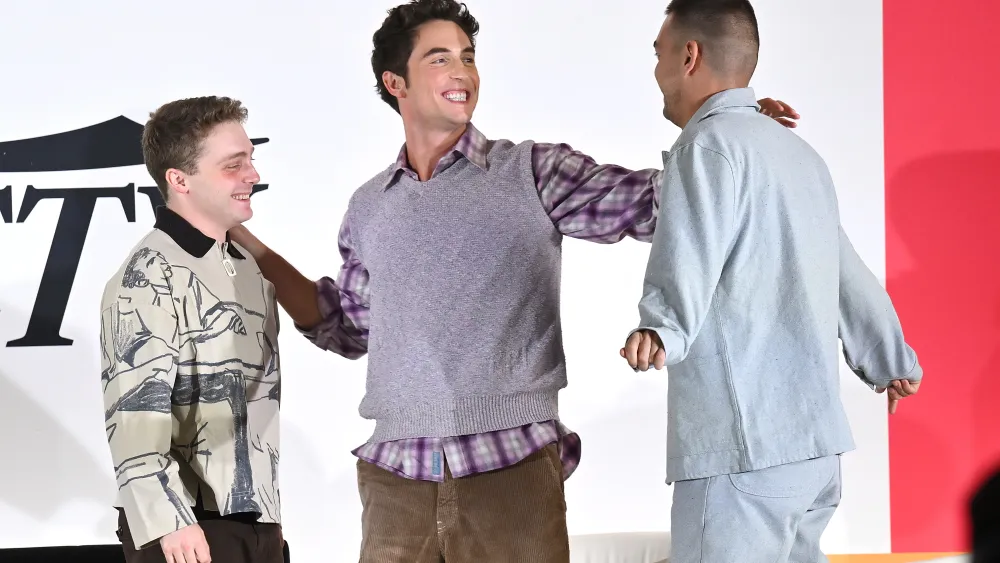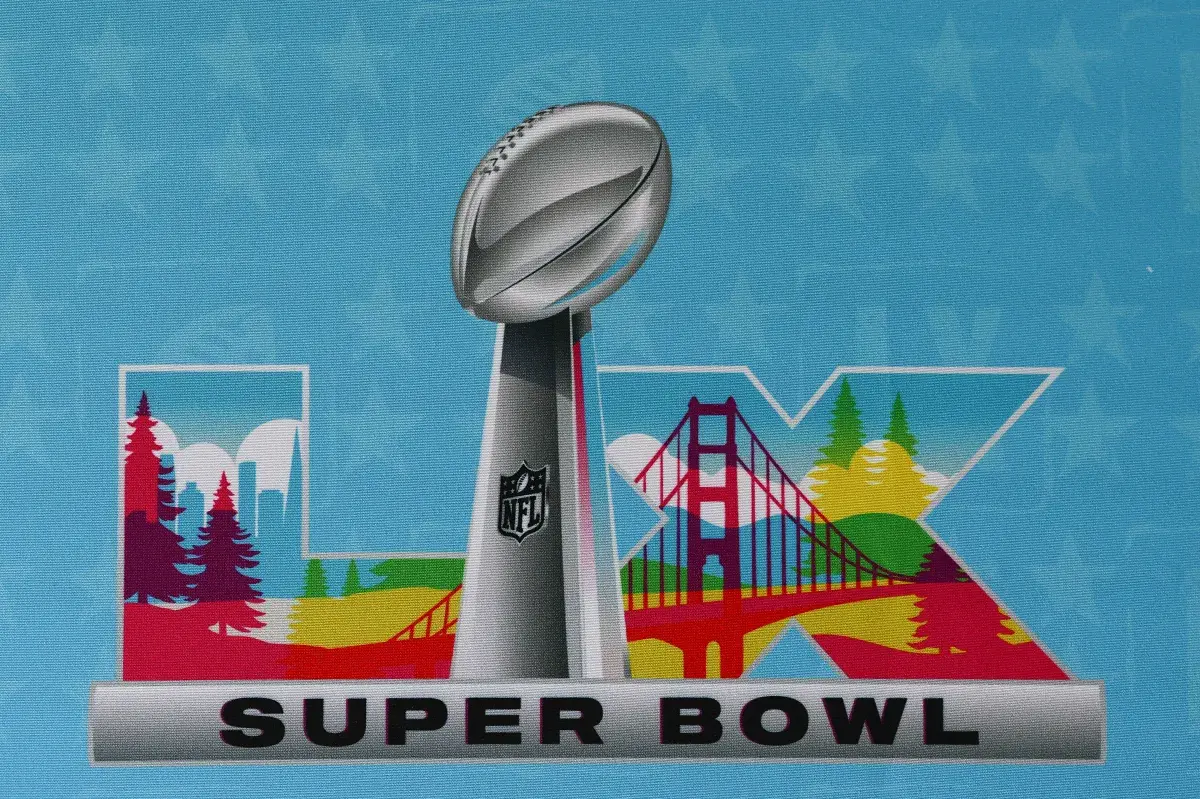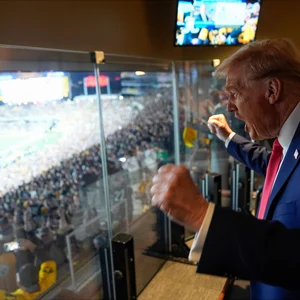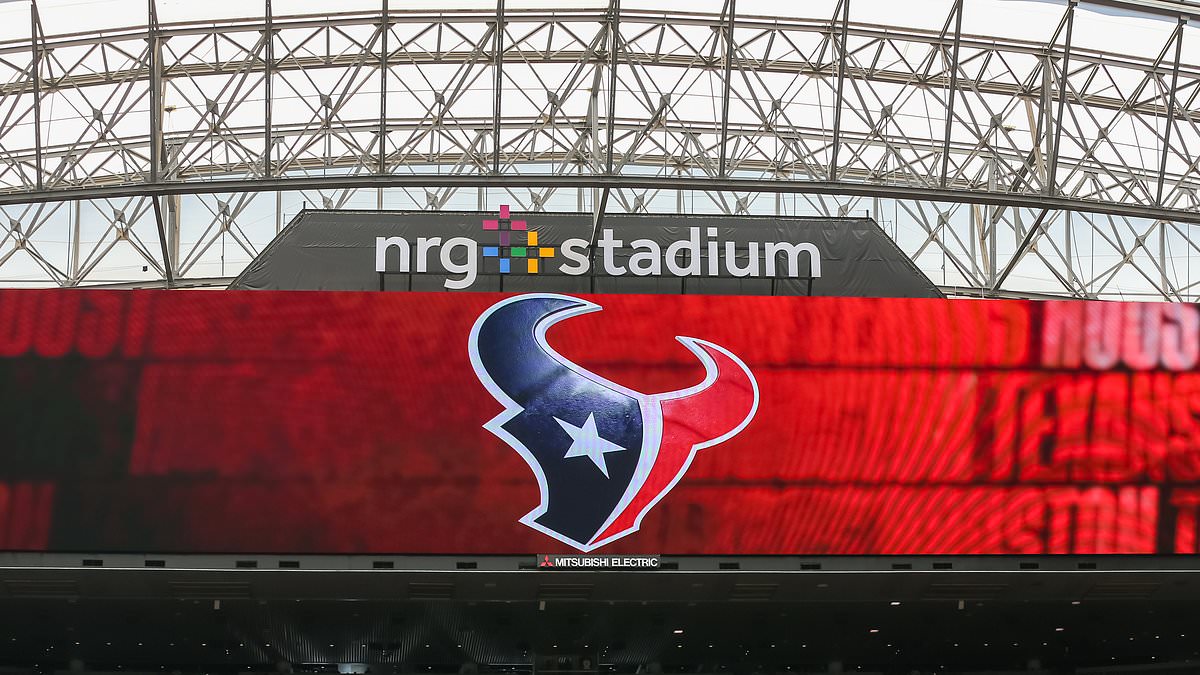
Variety’s Entertainment & Technology Summit gathered top executives, marketing leaders, technologists, entrepreneurs and creators across film, television and gaming on Thursday for a full day of keynote speakers, panel discussions and networking opportunities.
Industry insiders from Warner Bros. Discovery, Meta, Paramount+, Vizio, Netflix, Fox Entertainment and more shared their insights on current trends, tools and strategies that are revolutionizing the entertainment industry during the event held at the London West Hollywood hotel.
There were keynote conversations with Matt Duffer and Ross Duffer, who spoke for the first time about their four-year deal with Paramount as well as the future of “Stranger Things” as it enters its final season this fall on Netflix.
Later on, “F1: The Movie” producer Jerry Bruckheimer joined the stage for a discussion about his legacy, a potential follow-up to the racing film, “Top Gun 3” and a new “Pirates of the Caribbean” installment.
Gabrielle Union was also honored with Variety’s inaugural Entrepreneur Impact Award for her accomplishments in co-founding Proudly, a sustainable baby care brand with products designed for infants of color.
Additionally, conversations included panel discussions on leveraging content creators and influencers for digital campaigns, expanding on new and existing fandoms through live experiences, virtual reality reshaping entertainment, integrating AI to elevate human creativity, among other topics.
Read below for a few of the key takeaways from the 2025 Entertainment and Technology Summit:
Expanding Entertainment: VR’s Role in Shaping New Audience Experiences
Sarah Malkin, director of entertainment content for Meta’s Reality Labs, discussed how virtual reality is changing the way audiences experience live entertainment. “We are watching VR enable and empower a whole slew of new experiences that are often very complementary and additive to the fandom that people already have for entertainment that they love,” she said.
As VR works to enhance the consumer experience, Malkin said the main hurdle that they still face is developing a universal headset that doesn’t intimidate audiences who are unfamiliar with the technology.
Despite the challenge, Malkin said that the huge success within the gaming community inspired them to expand their entertainment catalog into sports, concerts, films, TV and other entertainment experiences.
Additionally, Malkin talked about their recent partnerships with creators like filmmaker James Cameron and film producer Jason Blum of Blumhouse Productions. “We see it [VR] continuing to complement other forms of entertainment to have a new way of experiencing, providing tools for storytellers and consumers and an economy around that.”
The Booming Live Experience Economy
Live experiences experts from Funko, Ernst & Young, Warner Bros. Discovery and Pinterest explored how the increased consumer demand for live experiences has become critical to the entertainment industry.
Judy Lee, global head of experiences at Pinterest, emphasized the importance of bridging the gap between world-building and fandoms to create deeply immersive real-life experiences that resonate with audiences at the core.
“Fandom and authenticity are so important to audiences,” Lee said. “I think that [quarantine] left a gap for people and a hunger to connect and feel something. I’ve learned that these younger generations blur the lines between the physical and digital worlds.”
She continued, “To them, they think digital is real. That is their life. That is authentic, and they’re much savvier than people who aren’t digital natives. They crave authenticity, transparency and main character energy.”
Simon Robinson, COO of WB Studios and Head of Global Experiences, added that they key to creating successful live experiences is keeping it authentic to the brand.
“The key to success is not just a commercial experience,” Robinson said. “It’s about the extension of the brand. Everything in the experiential world should be a brand deposit, not a chance to rip money out of someone’s pocket.”
Groundbreakers of Creative Marketing
Marketing leaders from Neon, NBCUniversal, Walt Disney Studios and Warner Records talked about how word-of-mouth remains impactful and the ways they use content creators and influencers as part of their marketing strategies to deliver buzz for their campaigns.
Margaret Walker, executive vice president of entertainment marketing at NBCUniversal, said that she leverages their talent to build exceptional content, build fandom and drive loyalty and community.
“It’s really important when finding creators to work with to find a creator who will most authentically resonate with the audience you’re trying to reach and authentically loves our brand,” Walker said.
Dustin Sandoval, senior vice president of digital marketing at Walt Disney Studios, spearheaded the campaign strategy for “Freakier Friday” and credited its success to creating one-of-a-kind moments that naturally went viral among the audiences that the content creators and influencers serve.
“You create opportunities and moments for content creation,” Sandoval said. “It happened organically, and all of these moments sparked and just hit everyone’s FYP in a positive way. The film, hitting $150 million globally recently, was just a big success, and we’re very proud of the campaign.”
Leveling Up in the Entertainment Industry: AI to Unlock New Creative Frontiers
Jason Chen, Desert Eclipse CEO, founder and executive producer, shared how he has integrated AI in his studio to shorten the production timelines for feature films and animations.
“We’re putting the artists first,” Chen said. “We go in from a writer’s perspective and use technology to allow creators and filmmakers to open up those books of ideas that you would think would never be possible.”
He shared an example of using AI to shorten variation shots for CG modeling or motion tracking to ultimately reduce animation production timelines down to 12-18 months.
Shahrzad Rafati, founder and CEO of RHEI, said she uses AI in her workflow to elevate human creativity and streamline the creative process. “The amount of content that we’re putting out there is far more educational, entertaining and higher quality,” she said. You’re allowing everyone to achieve their full potential for creativity.”
Behind the Scenes with Zeam, featuring John Stamos and Jack Perry
After launching in 2009, Jack Perry, founder and CEO of Zeam, discussed how he’s expanding his platform beyond supporting the live streams of local broadcasters to venture into live event streaming.
“We’re trying to lead by example on the content side, so we can show what could be leaning very heavily on pop-up live.”
As a way to push the envelope of technology, Perry has worked with John Stamos to crowdsource creatives for more content opportunities that run 24/7 on Zeam.
The duo has joined forces to take their streaming on the road with destination content in music and comedy, ultimately extending their reach by becoming more of a consumer-facing brand.
TV Industry Transformed
Evan Adlman, executive vice president of commercial sales and revenue operations at AMC Networks, talked about the current challenge of the TV landscape is figuring out how to get their content in front of as many viewers as possible due to the current model being extremely fragmented.
However, Adlman emphasized the importance of fandom to combat the industry issue that networks are facing.
“The way that we’re trying to capitalize on that is to make it easier for clients, advertisers, and our partners to understand what true fandom is versus passive viewing. And passive viewing doesn’t exist as much as it used to.”
Despite fragmented viewership, inability to measure across different platforms and other disruptions, the panel of industry leaders mentioned their excitement for the future of advertising and finding new ways to create the best viewer experience.
Sean Booker, head of media and entertainment sales at Vizio, noted that shoppable TV is up next for the future of advertising and TV.
“Shoppable TV will be huge in the future,” Booker said. “TV is the heartbeat of the home. The ability to transact on your TV and things like that will clearly come to the forefront in the near future.”
Champions of Sports Culture Across Platforms
When it comes to scaling success on a broadcast network, Robert Gottlieb, president of marketing at Fox Sports, shared an example of how crucial it is to get core fans to engage outside of the sporting events that they’re familiar with by finding their passion point.
“IndyCar is the fastest racing on earth,” he said. “They’re faster than F1 and NASCAR. That’s a compelling, interesting truth to people who are interested in motorsports. So we’ve built off of that.”
Carlos “Olek” Lewenstein, president of global sports at Televisa Univision, emphasized the importance of utilizing multiple social platforms as a marketing tool.
“If you have a sports property and you’re not unfolding into every single platform, you’re leaving money on the table because the leagues are charging you for that platform anyway.”
Storytelling Entrepreneurs
Sarah Foster, executive producer of “Nobody Wants This,” shared how authentic storytelling laid the framework for her Netflix show and is what she has found resonates with audiences the most.
“When I was writing the ‘Nobody Wants This’ pilot, I wasn’t writing a rom-com, and I wasn’t trying to bring rom-coms back or tell a different kind of story,” she said. “I just wanted to tell a story that was meaningful to me.”
She continued, “It was not following an act structure or an A/B story that I had learned in college. It was really just the story I wanted to tell.”
Matt Rogers, host of “Las Culturistas,” spoke about creating the podcast in 2016 with Bowen Yang and how their “Las Culturistas Culture Awards” started as a joke during one of their segments before transforming into a live awards show that aired on Bravo in July.
“It was to make us have fun, laugh and involve everyone in a big tent of fun because we need that. My job and purpose are to just make people laugh and smile.”
When asked about what stories they would like to see next, Nicole Byer said a love story and Jake Shane brought up a comedy, in which he would lead. Sarah and Erin Foster want to explore relationships more, whereas Benito Skinner would like to see more stories about friendships.
(Pictured top: “Therapuss” host Jake Shane, actor-comedian Benito Skinner, “Los Culturistas” host Matt Rogers)



